Alli Marshall's Blog, page 10
January 10, 2017
The bad girls’ book club and crime spree
From a month-long experiment writing about community, using social media as a platform.
Okay, there wasn’t much of a crime spree. I did steal some hair dye. This was before the days of Manic Panic so I used to color my homemade faux-hawk by first bleaching it with Sun-In and a hairdryer, and then dying it with the blue tint that old ladies used to buy at the drug store. But this is about community and not about shoplifting, though some of the best connections I made during my high school years were with the kind of girls who encouraged that sort of behavior.
[image error]Sometimes we stole things. It was more often beer than hair dye. We wrote things in bathroom stalls. More often, we wrote in our journals — every detail of our terribly interesting lives — and then we traded journals and read each other’s pages even though we’d been through most of it together. I’m compositing a number of high school friends here, though the relationships came one at a time and each was special and rare, and each shaped the me who I am now.
Friendships with good girls were important to me, too. My close friendships have been few and far between and I’ve cherished each one. But for some reason, between the ages of 13 and 18, my best friends were bad influences — fearless girls who egged me on and pushed me beyond my shy, studious, good-kid shell.
This is what we did: Shared everything. Every secret, every book we read, every album we [image error]listened to, every derivative poem we wrote, ever ache and fear and bruise and self-inflicted cut. We snuck into punk clubs, bought clothes at Salvation Army and reconfigured them into new outfits, traded boots and coats and earrings, consoled each other over shitty boy drama, walked for miles in the cold just to be doing something and going somewhere. We walked or took the bus because we were too young to drive and then too busy to learn to drive and then too poor to own cars. We stomped around in the cold, rosy cheeked and immune to frostbite, always on our way to a fantastic adventure.
We piled cast-out Christmas trees on rich-people cars. We sat in diners for hours drinking cup after cup of bad coffee. We talked about running away and made plans to run away and then we met new boys and stayed because maybe there would be a show or a party or something good. The future was soon; the now was hazy with the smoke of clove cigarettes and frosty breath and bad choices.
But the bad choices were good, too. Some of them still hurt like a war wound that flares up when it rains, but the hurt is a connection to a past and the past holds the bad girls who were my girls, my sisters, my family, my home. Community is where we make it, even if what we’re making is a mess. It all counts, it’s all part of the narrative.
Filed under: creativity, inspiration, Writing


December 22, 2016
Chapbook cover reveal…
I’m publishing a chapbook based on my social media writing experiment, #28DaysofLove. A number of the essays have been collected into this limited-edition, small-format book. It will be available around the new year.
Aaaaand here’s the cover art, designed by Alane Mason at The Branding House.
[image error]
Filed under: Books, creativity, Writing


December 12, 2016
Freshman Seminar
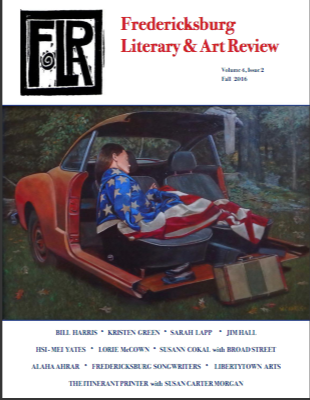 My short story, “Freshman Seminar,” is in the current issue of Fredericksburg Literary & Art Review. You can read it here.
My short story, “Freshman Seminar,” is in the current issue of Fredericksburg Literary & Art Review. You can read it here.
Filed under: fiction, short story, Writing


December 2, 2016
A story that was told to me by a painting
Inspired by the painting “My Heart Lives Outside My Body,” (pictured) by Daniel Nevins. This post is part of my writing experiment #30DaysofArt. Find more entries here.
THE FUGITIVE
One day the heart got a hold of a crowbar and pried itself out of its prison. It had been locked too long in the dark tower, not able to see anything, just taking the mind’s word for what was out there. But the mind got everything wrong. It had a lawyer’s reasoning and a miser’s unwillingness to part with its riches. “Don’t give more kindness than is required, ration your smiles, never trust more that you need to,” it advised. But the imprisoned heart slept on its coffers of gold and wondered if it wouldn’t rest more peacefully with fewer cold, hard coins rattling beneath its vertebrae.
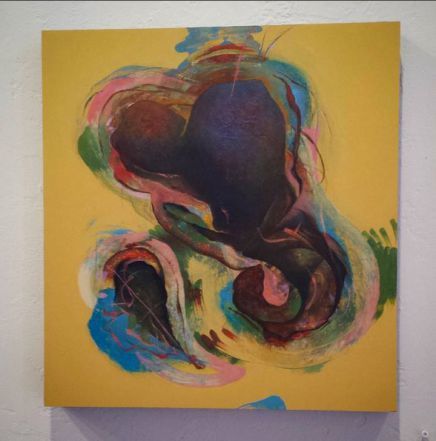 The escape was not without its fallbacks. “What’s the point of building a tower anyway, if not to keep something in it?” the mind asked. The heart fluttered nervously, grappling for purchase on the outside. The mind was right about that at least — the outside was a smooth suit without shelves or crevices. Certainly no bars. Maybe all along the bars had been less about restriction and more about protection.
The escape was not without its fallbacks. “What’s the point of building a tower anyway, if not to keep something in it?” the mind asked. The heart fluttered nervously, grappling for purchase on the outside. The mind was right about that at least — the outside was a smooth suit without shelves or crevices. Certainly no bars. Maybe all along the bars had been less about restriction and more about protection.
And, it was all so blindingly bright. The heart felt itself burning in the sun and shivering at night. But it could see stars for the first time ever. Orion made its way across the winter sky and the heart swooned a little.
“Stop that,” the mind scolded. “You can’t go around just falling in love all over the place. Plus, you’re bleeding on everything. You’re a mess.” It was true. The heart was naked and raw. It thudded and gurgled and made a fool of itself. It was scared a lot. It wished it had a heart-shaped suit of armor. But still it stayed, trying to balance on a shoulder like a good guardian angle, whispering sweet nothings into the closest ear. Sweet everythings, really, because everything — after the initial rush of panic and doubt — was sweet and rich and bathed in wonder.
The heart swayed to music, drank rain, stuck out a capillary to catch the first snowflakes. It shivered as much from anticipation as from chill. Everything was a thrill, every caress of the wind, every passing glance of a stranger, every new song, every saturated color. The heart dressed itself in fresh paint and feathers. It admired its newly acquired scars.
“This has gone on long enough,” the mind said. It was using its patient-but-getting-sick-of-this-shit tone. “You have a place. IT’S INSIDE. Go back to your room and do your job.”
But the heart was in love again and again and again. It would not listen to reason. It wouldn’t even slow its roll enough for those prickling words of insecurity to catch up.
The heart surged toward its new desire. It rushed and throbbed. There was danger everywhere, outside the body. Car horns, sirens, hungry bears. But the new love was so beautiful, so real, so rare, so close. The heart wanted nothing but to fling its wealth at the feet of its desire, to rattle and beat a new poem, to curl into the curve between its love’s neck and shoulder.
The heart said that it would never go back.
“You’ll die of exposure,” the mind grumbled.
“I might,” the heart shrugged, like what could be better? It checked its look and fluttered its lashes. It leaned toward love like it was immune to gravity, like at any moment it might grow wings.
Filed under: creativity, fiction, inspiration, short story, Writing


November 23, 2016
Dear Vincent
Originally published on Facebook as part of the social media experiment #30DaysofArt
It took me all morning to find the Vincent van Gogh paintings in the Musée d’Orsay. Not because they’re not well marked — I could have walked right to them — but because I have a thing about delayed gratification, so I made myself walk through every other room leading up to Vincent. And then there he was, like a long-lost lover appearing, as the crowds parted, at the end of the jetway. “Mine,” I thought. And then I ugly-cried like an overwhelmed Justin Beiber fan, right there in front of Vincent’s self-portrait.
To be fair, I also cried a least a little bit because I’d doing too many hill sprints in Montmartre and not enough chilling at cafes, drinking half-carafes of Sancerre. Sometimes I make it very hard to be me. My hips ached and the slow crawls through museum after museum didn’t help. Also, Paris is terribly romantic and everyone is in love and making out everywhere all the time, but I was not in love. I was alone. It was bullshit.
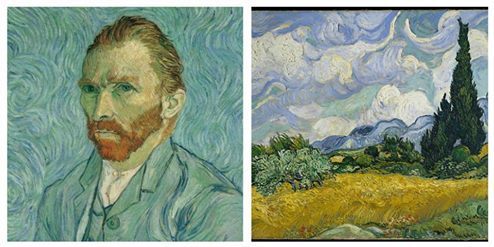
I wondered, in the Musée d’Orsay, if Vincent wasn’t a lot like me. Too hard on himself and in love with someone who didn’t love him back, or at least not as he should have been loved. Because, my god! He was Vincent Fucking van Gogh! But he probably didn’t know that. He probably thought he was a weird Dutch dude, hopelessly unstylish, who made strange paintings. He probably suspected he was inherently unlovable. And yet love lived in him, so he did what he could — he put it all on the canvas. Those kinetic shapes, the saturated colors, the way a wheat field was as sensual as a woman; the way he captured his own agony with the same electric strokes he painted sunflowers — as if human ache and madness pulsed with the same sun-drenched ebullience as a vase of fresh flowers.
He worked at the synthesis of beauty and pain. He buried his heart there, in those hues, those lines that are so specifically his. And I swear his lovely, immortal, perfectly broken heart beats on, forever, through his paintings.
Filed under: creativity, essay, inspiration, Writing


November 10, 2016
Stay open
November 9, 2016
Art. Love. Revolution.
Though I can’t make a political statement under the auspices of the alt-weekly paper I write for, I do want to speak from the perspective of a longtime arts writer and editor. Because art is what we have. Art is the conversation. Art is our great gift, to ourselves, each other, our communities and the world.
The election results were a blow to many people I care about and even more who I don’t know but whose concerns — LGBT rights, the environment, multiculturalism, civil rights, justice, the arts — mirror my own. But this is not the time to lose heart. Rather, this is the time to be brave, be bold, stand with those we love and stand for those who feel disempowered and disenfranchised. And this is the time to make art.
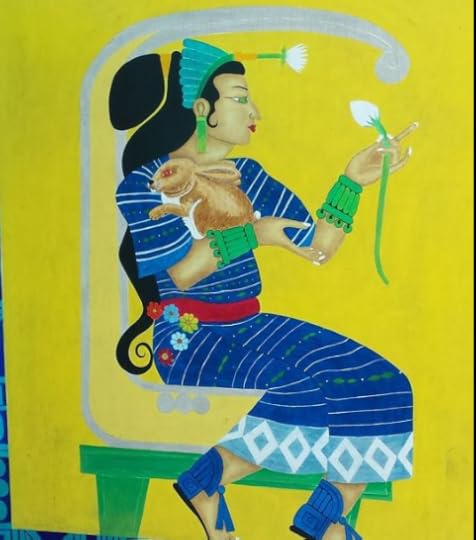
Public art, Isla Mujeres, Mexico
We have not lost our freedom of speech. We live in a country where we can express unpopular opinions, speak out against our government and disagree with our neighbors without fear of being imprisoned, or worse. We owe it those who do not have such luxuries to exercise those rights. And for those who don’t feel safe to speak out, we must be their voices and tell their stories.
To love in the face of hatred is a revolutionary act. To hope in the face of fear is a revolutionary act. Defy that which insults your good heart. Stand tall, radiate, invest in what you love, what feeds your soul, what strengthens your community, what represents your humanity.
A president is essentially a figurehead of an ideology. So we woke this morning to face an ideology that is not in alignment with who we are in our human evolution. The sad reality is that — due to fear of change and perceived otherness — it reflects the ideology of some of our neighbors. But that still does not mean we must reconcile ourselves to a world of hate, fear, suspicion, smallness and isolation. Instead, we must be bigger than that, greater than the sum of our parts, greater than the grip of our fears.
Change is a force, like water cutting through rock. It can’t be stopped. It flows around opposition. It wears down all barriers. Be the water. Be the change. Be in the flow with all that’s beautiful and inspiring and unstoppably alive.
There’s an ad on TV right now for a PBS program on contemporary art. In it, a man says, “Can art change a community? It happens all the time.” So make art. Whatever form you work in, go to it. Delve deeply into it. Say what you need to say, but also listen for the more nuanced — or perhaps more universal — messages that are conveyed through the creative process. Face the darkness; face your own unfathomable being. Give yourself to that work, push your edge, let it change you so that you, in turn, can change those you touch.
And be changed by the art of others. Be engaged in that conversation. This is not the time to sit quietly or idly. Find stillness, yes. Find space to listen. And then do the work that you’re called to. Join the army of love. Be a warrior for what you believe. Hold fiercely to the idea that your work matters, your love matters, your shining being matters.
I love you. I see you. I’ve got your back.
Filed under: creativity, inspiration, Writing


November 7, 2016
In the beginning there was the word
I was recently at a writers’ conference where a fellow author said to me, “Oh, I hate writing. I’d quit if I could.” I thought it was a funny statement, but also sad. Why would anyone give their time to a pursuit that they don’t love? Just because a story presents itself to you doesn’t mean you have to tell it. As author Matthew Quick writes in his YA novel, Every Exquisite Thing, “Just because you’re good at something doesn’t mean you have to do it.”
For me, the word — both written and read — has long been a joy. I’ve lived in books. I believe I’ve loved fictional characters (both of my own creation and others) sometimes more deeply, more completely, than I’ve loved actual people.
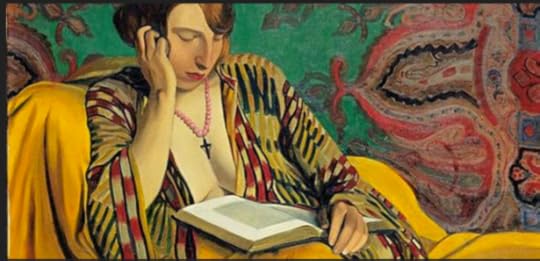
“Woman Reading” by Félix Vallotton, 1906
There was Kip, the Sihk bomb defuser from The English Patient. I’m not ashamed to say I loved him. And I love Michael Ondaatje for writing him. George Emerson from A Room With a View is both one of the great loves of my life and my spirit animal. We all need a George Emerson who runs into the countryside shouting, “Beauty!” and pulling us along in his thrall. And thanks to E.M. Forester, we can all visit George anytime we like. Theo Decker — lover of antiques and accidental stealer of art from Donna Tartt’s The Goldfinch — I loved him, too. And not because he was sexy or clever or age-appropriate, but because his brokenness and obsessiveness felt akin to my own. It’s good to find kindred spirits.
I don’t recall ever not loving books. I can’t remember a time in my life when I didn’t travel with a book, or sleep with books by my bed. I’m a fan of ebooks, too — I don’t have to feel the page to know I’m reading — but there is something friendly about a volume. It’s tactile, yes. But it also contains the magic of a hidden world within its binding. That we can go through life in possession of such miraculous objects casts enchantment over day-to-day monotony.
I’m sure I came to writing in part due to my love of reading. I know I felt a kind of rightness among words. In fiction, lives aren’t necessarily tidy or fully realized, but they’re examined. They’re contemplated. Even in the violence and lostness, there’s poetry. There’s a revelation in the human spirit.
I read to understand people better, to travel, to explore, to inquire. I write to excavate. I sometimes think that I don’t know what I feel until I write it down. So if I know anything at all about love, it’s the characters in my own fiction who have schooled me. This is something Bryn says in How to Talk to Rockstars — I think it’s terribly romantic. I could never say this in person, because I’m not that smooth, but I did type it once:
“Dance me. My feet on your feet if we have to do it that way. But don’t be gentle with me because my god I’m tired of this kid gloves approach to living. Break me with your softness. Wound me with your kindness, your sweet heart, your clean soul.”
Filed under: Books, creativity, essay, Writing


October 27, 2016
Time Machine
You’re sitting on the back deck watching a small, brown rabbit nibble grass. He’s nervous, shooting you worried looks. But he also stays, keeps eating. It seems like a sign of something good, or at least not a sign of anything bad and sometimes it’s enough to just be still and watch a rabbit be a rabbit.
And then the weird next-door neighbor, the one who lurks behind his expensive shrubbery, pops out from the mock orange. The rabbit darts away and even though you shouldn’t take it personally, you feel your heart sink.
“Come see what I have in the garage,” the neighbor says. You’re going to decline because, seriously? Who would even think that’s okay to say? But then he adds that it’s a time machine.

Image from the Predestination film poster
Okay. All the rich people who move to the mountains from Atlanta to retire can afford central air and reclaimed wood kitchens. (You have already pointed out that your kitchen is also wood. The original. And more than once you’ve reclaimed it from the rats, so. Maybe that will be the big trend in ten more years — rat-salvaged wood kitchens.) But this guy. This guy is so particularly rich that instead of installing a cedar-lined sauna or a recording studio, he’s gone and bought a time machine.
Where does one even purchase such a thing? Obviously this a world in which everything exists and if it doesn’t, it can be 3-D printed. But rich people do have more access than poor people. You’re not poor, but you’re not living in a 600-square-foot cottage because you’re jumping on board the tiny house movement, either. And rat-wood. So of course you put on your flip-flops and cross your yard to his yard. It’s a time machine, for crying out loud.
You do have a moment of prickling fear at the entrance to the neighbor’s garage. It’s suddenly an obvious ploy to get you inside — but to do what? Chop you up and store you in his chest freezer? No one does that anyone. For one, no one could post about it on any social media platform (unless there’s a special secret social media platform only accessed by ax murderers) … and then you’re inside and yes. There actually is a large silver orb, covered in traffic sign-sized sheets of tin and surrounded by blinking red and green lights. There’s a haze of smoke, which could just be dry ice, but it certainly sets the mood.
“You can use it if you want,” the neighbor says. “Just once, though. It has some kinks so for now you can only take one trip, and you have to do whatever you’re going to do in fifteen minutes. That’s all you get before it zaps you back.”
“Wait, what?”
“Don’t tell me you’ve never thought about it — what you’d do if you could go back to the past in a time machine.”
“Well, of course. Everyone has.”
“So go,” he says. “I’ve already pre-paid for the month, and I wasn’t going to use my one trip for today.”
You just kind of gape at him.
He shrugs. “I figured everyone already knew where they’d go. You know, if they had the chance.”
“No, I mean, yes. Of course,” you say.
“I’ll give you a minute to think about it,” he says. He shows you what button to push. He reminds you that you’ve only got fifteen minutes. “So keep it light — first kiss, wedding dance — no re-routing the Titanic or anything.”
You settle into one of the redwood chairs the neighbor has in his garage. You look around at his stuff— tools lined up neatly on a tool bench, expensive bicycles that look like they’ve never been ridden, skis even though it rarely snows here enough to go skiing. You think about your first kiss and how dumb and awkward it was. What was the guy’s name? Jason something. Or Mike something. Or Chad. It was at summer camp and every guy at summer camp was called Chad. Nope. Not reliving that.
You think about the boy you wish you’d kissed. Micah, the skateboarder with the dark fin of hair obscuring one eye. How you’d left notes in his locker and sometimes he’d written back, or called you late at night. You had your own phone in your room. It was purple. Micah’s voice sounded like smoke and heartache, and you thought he was romantic. What you’d say, if you could go back, is, “Don’t hang yourself from the rafters of your neighbor’s garage.” But if you said it to him when he was sixteen, he’d just laugh at you. You’d have to show up when he was twenty and drunk and depressed, and seriously thinking about it. Only you don’t know exactly when it happened because you’d moved on by then, gone to college and forgotten about him.
You twist your hands, unable to settle on a date. Maybe college, then. What if you could change your major from Renaissance Literature to something that would actually earn you a living? But it’s your paltry paycheck you regret, not your life of books. You could maybe go back in time and change the minds of the people who decided professional athletes should make zillions and poetry scholars should make slightly less than fast-food workers, but really, that was like stopping the Titanic from sinking.
The past hurts, when you think of it. It’s full of dark corners and pits of quicksand that you are mostly thankful to have narrowly averted. You think, why would anyone go back? None of us might be so lucky the second time around.
Maybe you’d be luckier in your doomed marriage if … what? If you never said yes in the first place. Or if the last time your husband stood by the door with a suitcase you said stop, or wait, or please. But love, in retrospect, seems like such a rare magic. Fireflies, the migratory patterns of monarchs, the bright gasp of a falling asteroid. Who are you to climb into it with a wrench and screwdriver, trying to recalibrate its mechanism? And maybe your husband was right to leave. You are a Renaissance Literature scholar. You write poems about the bright gasp of falling asteroids. Your grasp of practical matters like marriage and time travel is tenuous at best.
Hell, you’ve been sitting in your neighbor’s garage for the past fifteen minutes incapable of recalling a single moment of your life you’d do over, or do differently. You’re content to watch the movie of it roll across your mind’s eye. The best moments are the simplest. The time you swam in the blue-green waters of the Gulf of Mexico, the time you witnessed the the wind moving through a cornfield, the time you fell asleep to the song of the crickets through your open windows.
You finally stand and enter the time machine and press the button. There’s a clatter of engines and the stomach-lurching drop of a roller-coaster. When you open the door, a cloud of smoke clears. You’re on your own back deck and, nearby, there’s a small, brown rabbit nibbling grass. He’s nervous, but he also stays. It seems like a sign of something good, just to be still and watch a rabbit be a rabbit.
Filed under: fiction, flash fiction, short story, Writing


October 24, 2016
Poetry for a moody Monday
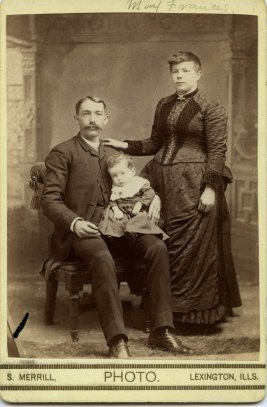 I haven’t posted much poetry here, but I’m collecting pieces for a future chapbook and so it seems like a good time. This particular piece, dealing with the darker aspects of love, will also be part of a project I’m carrying out on my personal Facebook page, called 28 Days of Love. If you’d like to read more musings about love in its various forms, visit me/friend me here.
I haven’t posted much poetry here, but I’m collecting pieces for a future chapbook and so it seems like a good time. This particular piece, dealing with the darker aspects of love, will also be part of a project I’m carrying out on my personal Facebook page, called 28 Days of Love. If you’d like to read more musings about love in its various forms, visit me/friend me here.
# # #
ANTIQUING
You were supposed to decode the message behind
my stupid jokes and over-bright laugh. The brash word
“like,” ricocheting around us. I like you. Like you, like you.
Some younger version of myself tap dancing for attention
while this me winces at the acrid need. Why do we want
what we can’t have? Why want for anything
when there is already too much? To cool the crush
I wandered aimlessly through an antique mall, fingers
grazing the remnants of lives already played out. Death
is not the enemy. It leaves a kind of order, a story
that makes sense in retrospect. Cream-colored cameos strung
on velvet cord, 20s-era ukulele banjo, camping guide
to the Badlands rendered in watercolor shades of sunset,
acorn-shaped cookie jar with the faintest whiff of home.
You and your wife and baby daughter are a photograph.
I don’t belong there. I’m an accidental interloper,
the burn of desire racing in ahead of me, carrying my flag.
But no one wants to be the invasive species, creeping
on scales and tendrils, its path marred by destruction.
I don’t picture us in a gilt frame or a time-yellowed album,
our memories twined into a single narrative.
There’s a comfort in cast-off things, occupying the purgatory
of shelves and cabinets, waiting to be found again. Waiting
to be given new meaning. But who would we be, found
by each other, our stories told new? Or just dusted off
and cradled briefly in a palm. Even inanimate objects
know the touch of a sympathetic hand. Requited love
is a ray of light flooding a long-shuttered window.
Filed under: poetry, Writing








